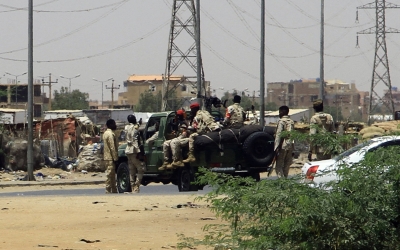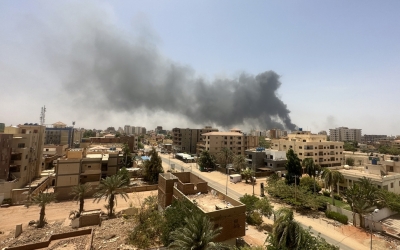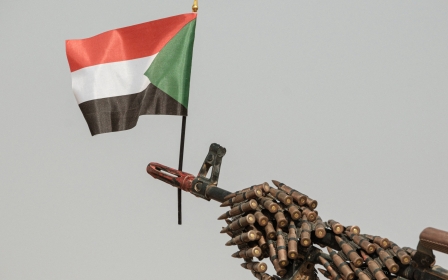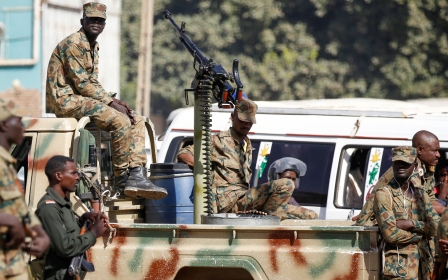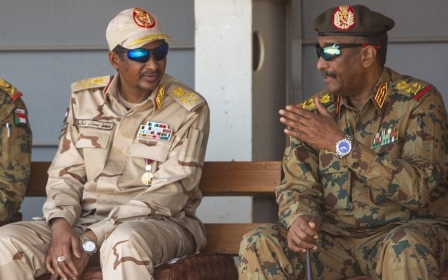Sudan: Fierce clashes erupt between army and paramilitary force
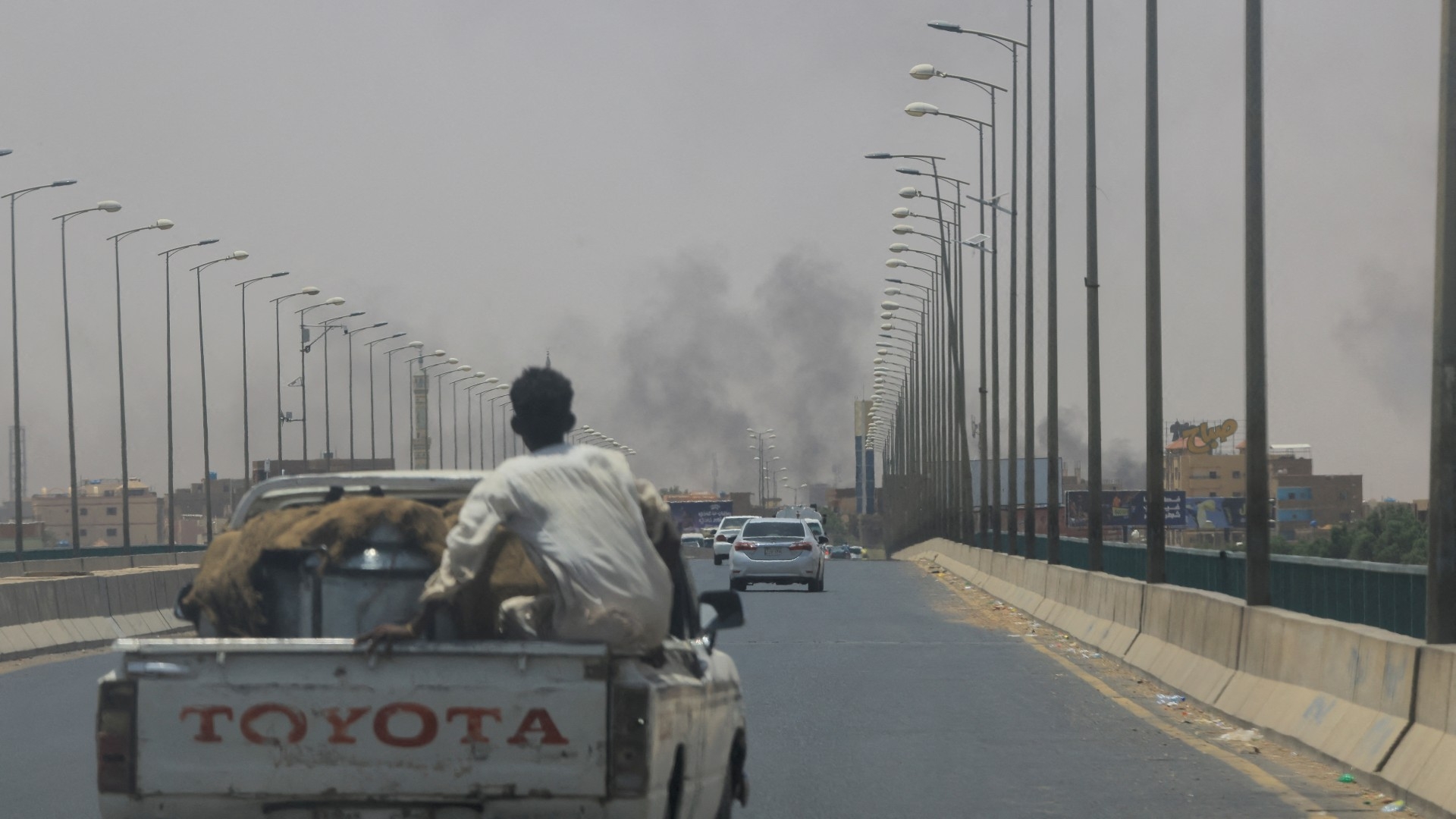
Fierce clashes erupted on Saturday between Sudan's military and a powerful paramilitary group, following days of tensions between the two forces.
The sound of heavy gunfire could be heard across the capital, Khartoum, and its sister city of Omdurman, where both the military and the Rapid Support Forces (RSF) have amassed tens of thousands of troops since an October 2021 military coup that derailed Sudan's fragile path to democracy.
The RSF, which is estimated to have around 100,000 fighters, claimed it had gained control of Khartoum international airport, Merowe airport, al-Obeid airport and the presidential palace, after an attack on its military base in south Khartoum at about 9am local time on Saturday.
Clashes were also reported at the headquarters of Sudan's state TV, an anchor who appeared on screen said.
"We will not stop fighting until we capture all the army bases and the honourable members of the armed forces join us," RSF chief Mohamed Hamdan Daglo, who is better known as Hemeti, told Al Jazeera Mubasher in a phone interview.
However, army chief General Abdel Fattah al-Burhan denied the RSF's claims, later telling Al Jazeera that the army was in full control of the presidential palace, military headquarters and the airport.
"We think if they are wise, they will turn back their troops that came into Khartoum. But if it continues, we will have to deploy troops into Khartoum from other areas," he said.
MEE could not independently verify the RSF's claims.
Nisrin Elamin, an Assistant Professor of Anthropology and African Studies at the University of Toronto, told MEE, that she was sheltering in place after fierce clashes broke out near where she lives in Bahri, a suburb of the capital.
"We can hear heavy gunfire between Sudanese army and the RSF. The electricity is out and the internet will get shut down soon too," she said.
'Immediately cease hostilities'
One of the flashpoints was Khartoum International Airport, where clashes grounded commercial Sudan-bound flights from Saudi Arabia, which turned back after nearly landing at the airport, flight tracking data showed Saturday.
Saudi Arabia's national airline said one of its Airbus A330 aircraft was involved in "an accident." Video showed the plane on fire on the tarmac.
Another plane also appeared to have caught fire in the attack. Flight-tracking website FlightRadar24 identified it as a SkyUp Airlines Boeing 737. SkyUp is a Kyiv-based airline. It did not immediately respond to a request for comment.
The Sudan Doctors Committee - a part of the country's pro-democracy movement - said two civilians were killed at the airport, without specifying the circumstances. It added that another man was shot to dead in North Kordofan state.
The military's civilian interlocutors called on both sides "to immediately cease hostilities and spare the country slipping into the abyss of total collapse."
A ceasefire call also came from former prime minister Abdalla Hamdok who was ousted in the coup, later reinstated, and then resigned.
Their plea was echoed by US ambassador John Godfrey, who tweeted that he "woke up to the deeply disturbing sounds of gunfire and fighting" and was "currently sheltering in place with the embassy team, as Sudanese throughout Khartoum and elsewhere are doing".
How did we get here?
Tensions between the military and the RSF have escalated in recent weeks over disagreements concerning the integration of the RSF into the military, and disputes over what authority should oversee the process.
The integration is called for in a framework deal for naming a civilian government and launching a new transition.
The power struggle has twice forced a delay of signing the internationally backed agreement, originally scheduled for 1 April.
The deal is thought to favour Hemeti, which is one reason why the RSF chief has been publicly supporting it. A draft of the final agreement seen by MEE calls for the integration of the SAF and RSF – in addition to former rebel movements – to be agreed within 10 years.
The Sudanese Armed Forces, meanwhile, want the process of integration to take two years.
In March, the rivalry escalated, with Burhan calling for the RSF to be integrated into the military. Hemeti responded defiantly, saying that he regretted the October 2021 coup he had helped bring about with Burhan.
Created in 2013, the RSF emerged from the Janjaweed militia that then-president Omar al-Bashir unleashed against non-Arab ethnic minorities in the western Darfur region a decade earlier, drawing accusations of war crimes.
Middle East Eye propose une couverture et une analyse indépendantes et incomparables du Moyen-Orient, de l’Afrique du Nord et d’autres régions du monde. Pour en savoir plus sur la reprise de ce contenu et les frais qui s’appliquent, veuillez remplir ce formulaire [en anglais]. Pour en savoir plus sur MEE, cliquez ici [en anglais].


